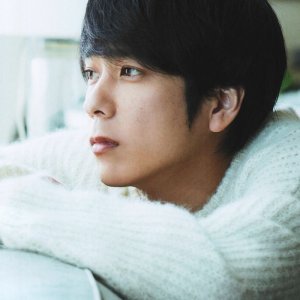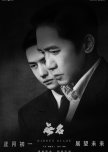An incredibly intense espionage thriller
Before getting into the review, here is some historical background for the film:
The film is set during the Second Sino-Japanese War and WWII. There are several powers in play at this time: the Chinese Communist Party, the Chinese Nationalist Party or Kuomintang, and Imperial Japan. Imperial Japan invaded Manchuria (located in northeastern China) in the early 1930s and established the puppet state of Manchukuo. It was here where they hoped to establish a base from where they would continue their expansion into Asia.
In 1937, after many years of conflict, Japan occupied Shanghai, Nanjing, and Beijing. The Nanjing Massacre occurred at this time. After the fall of Nanjing, which had been the capital of the Republic of China at that time, the Kuomintang moved the capital west to Chongqing, under Jiang Jieshi's leadership. During this time, the Chinese Communist Party and the Kuomintang formed a temporary alliance, suspending the years of civil conflict between them, although their vie for power continued.
In 1940, Wang Jingwei, who was once a member of the Kuomintang but had always been in opposition against Jiang Jieshi, collaborated with Japan to establish the Wang Jingwei regime. They claimed to be the leadership of the Republic of China, when in fact they were a puppet government of Japan, overseeing the Japanese-occupied territory in eastern China, under Japan's control. They established their capital in Nanjing and used the Kuomintang flag. The Axis powers recognized the Wang Jingwei regime, while the Allied powers still recognized Jiang Jieshi as the leader of the Republic of China.
From 1937-1941, Japan had left a few neighbourhoods in Shanghai unoccupied, because that was where the American-British joint settlement and French Concession were located. Many people fled to this area to live at that time. After Pearl Harbor in 1941, the entirety of Shanghai became occupied by Japan. Many cities were bombed during these years, including Guangzhou, which experienced bombings for 14 months in 1937-1938.
During this era of war, which is also called the War of Resistance in China, espionage networks were established to try to undermine the enemy. Hidden Blade tells a story about these individuals.
---
Even without knowing the historical context, Hidden Blade presents a visual feast of vivid characters and imagery. Cheng Er uses a non-linear narrative approach to reveal the stories of these characters. The main characters, Mr. He (Tony Leung) and Mr. Ye (Wang Yibo), are both enigmatic and morally ambiguous. We meet Mr. He, the charming man who hides intimidation behind a pleasant smile, and Mr. Ye, a rootless man who does not shy away from violence. Tony Leung does not disappoint as the veteran actor that he is, as the man who can tell stories with just his eyes or a slight smile, and he delivers a charismatic performance that reaffirms why he is such a revered actor. Wang Yibo delivers a phenomenal performance to match. Mr. Ye is a compelling character who is mesmerizing, perplexing, suave, and incredibly human at the same time. Wang Yibo does a fantastic job of portraying this complex character with mysterious motives, who seems to hide much more than he lets on behind his cool and composed appearance. He excels at playing a character whose inner turmoil is silently repressed.
The cast of side characters are also worth mentioning, with memorable performances from all of the actors. I take half a star off only because I feel that the female character stories could have been explored further. Zhou Xun makes a special appearance as Ms. Chen, and although her part is brief, she captivates the audience from the moment she walks onto the scene with her package of pastries and she leaves an emotional impact on the audience even in the short time that she has on screen. Jiang Shuying (Ms. Jiang) and Zhang Jingyi (Ms. Fang) are both charming as well, however their opportunity to showcase their strengths is quite limited.
The cinematography is well-executed and the attention to detail is remarkable. In one interview, Cheng Er reveals that even the ties that are worn by the characters are all actual ties from that era that have been collected. The music also compliments the scenes beautifully, adding further to the tension which Cheng Er builds so skillfully throughout the film. The choreography of the fight scenes is also top-tier and will not disappoint.
As a movie depicting times of war, there are several scenes that are difficult to watch and Cheng Er does not shy away from showing the cruelty of what people may have experienced. General content warnings without spoilers include torture, suffocation, death of an animal, implied rape (not depicted), as well as genre-typical violence that one may expect from an espionage war thriller.
Overall, the cast and crew have created a incredibly intense thriller that will keep you on the edge of your seat and leave you thinking about many scenes even after finishing the film. There are many parallels drawn throughout the film and it is a film that only gets better with rewatching as one lets the details marinate. At the end you're left with a lingering admiration for the individuals who struggled to free themselves from the oppression that they lived under. In doing so, they have sacrificed their own lives, their relationships, and even their own values in their effort to forge a path forward, towards a future where the nameless ones might once again stand in the sunlight.
The film is set during the Second Sino-Japanese War and WWII. There are several powers in play at this time: the Chinese Communist Party, the Chinese Nationalist Party or Kuomintang, and Imperial Japan. Imperial Japan invaded Manchuria (located in northeastern China) in the early 1930s and established the puppet state of Manchukuo. It was here where they hoped to establish a base from where they would continue their expansion into Asia.
In 1937, after many years of conflict, Japan occupied Shanghai, Nanjing, and Beijing. The Nanjing Massacre occurred at this time. After the fall of Nanjing, which had been the capital of the Republic of China at that time, the Kuomintang moved the capital west to Chongqing, under Jiang Jieshi's leadership. During this time, the Chinese Communist Party and the Kuomintang formed a temporary alliance, suspending the years of civil conflict between them, although their vie for power continued.
In 1940, Wang Jingwei, who was once a member of the Kuomintang but had always been in opposition against Jiang Jieshi, collaborated with Japan to establish the Wang Jingwei regime. They claimed to be the leadership of the Republic of China, when in fact they were a puppet government of Japan, overseeing the Japanese-occupied territory in eastern China, under Japan's control. They established their capital in Nanjing and used the Kuomintang flag. The Axis powers recognized the Wang Jingwei regime, while the Allied powers still recognized Jiang Jieshi as the leader of the Republic of China.
From 1937-1941, Japan had left a few neighbourhoods in Shanghai unoccupied, because that was where the American-British joint settlement and French Concession were located. Many people fled to this area to live at that time. After Pearl Harbor in 1941, the entirety of Shanghai became occupied by Japan. Many cities were bombed during these years, including Guangzhou, which experienced bombings for 14 months in 1937-1938.
During this era of war, which is also called the War of Resistance in China, espionage networks were established to try to undermine the enemy. Hidden Blade tells a story about these individuals.
---
Even without knowing the historical context, Hidden Blade presents a visual feast of vivid characters and imagery. Cheng Er uses a non-linear narrative approach to reveal the stories of these characters. The main characters, Mr. He (Tony Leung) and Mr. Ye (Wang Yibo), are both enigmatic and morally ambiguous. We meet Mr. He, the charming man who hides intimidation behind a pleasant smile, and Mr. Ye, a rootless man who does not shy away from violence. Tony Leung does not disappoint as the veteran actor that he is, as the man who can tell stories with just his eyes or a slight smile, and he delivers a charismatic performance that reaffirms why he is such a revered actor. Wang Yibo delivers a phenomenal performance to match. Mr. Ye is a compelling character who is mesmerizing, perplexing, suave, and incredibly human at the same time. Wang Yibo does a fantastic job of portraying this complex character with mysterious motives, who seems to hide much more than he lets on behind his cool and composed appearance. He excels at playing a character whose inner turmoil is silently repressed.
The cast of side characters are also worth mentioning, with memorable performances from all of the actors. I take half a star off only because I feel that the female character stories could have been explored further. Zhou Xun makes a special appearance as Ms. Chen, and although her part is brief, she captivates the audience from the moment she walks onto the scene with her package of pastries and she leaves an emotional impact on the audience even in the short time that she has on screen. Jiang Shuying (Ms. Jiang) and Zhang Jingyi (Ms. Fang) are both charming as well, however their opportunity to showcase their strengths is quite limited.
The cinematography is well-executed and the attention to detail is remarkable. In one interview, Cheng Er reveals that even the ties that are worn by the characters are all actual ties from that era that have been collected. The music also compliments the scenes beautifully, adding further to the tension which Cheng Er builds so skillfully throughout the film. The choreography of the fight scenes is also top-tier and will not disappoint.
As a movie depicting times of war, there are several scenes that are difficult to watch and Cheng Er does not shy away from showing the cruelty of what people may have experienced. General content warnings without spoilers include torture, suffocation, death of an animal, implied rape (not depicted), as well as genre-typical violence that one may expect from an espionage war thriller.
Overall, the cast and crew have created a incredibly intense thriller that will keep you on the edge of your seat and leave you thinking about many scenes even after finishing the film. There are many parallels drawn throughout the film and it is a film that only gets better with rewatching as one lets the details marinate. At the end you're left with a lingering admiration for the individuals who struggled to free themselves from the oppression that they lived under. In doing so, they have sacrificed their own lives, their relationships, and even their own values in their effort to forge a path forward, towards a future where the nameless ones might once again stand in the sunlight.
Was this review helpful to you?















